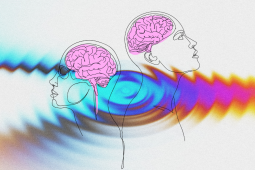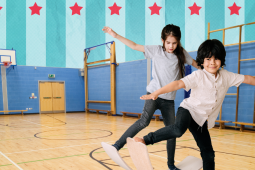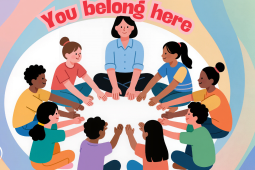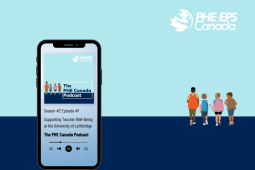Pleasure and Happiness in Education (an Alternative Form of PHE) (Peter Train 2021)
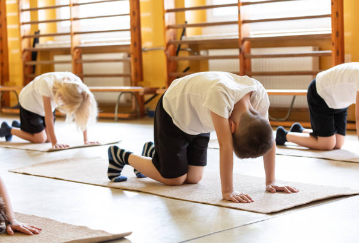
Previously published Volume 86, Issue 4
Abstract
In what ways might ‘a pursuit of pleasure and happiness’ transform curriculum and pedagogy in secondary school physical and health education? This article is based on a six-year PhD teacher inquiry (Train 2018) in which a teacher applies Epicurean philosophy to the teaching of secondary school (Grade 8-12) PHE in British Columbia (B.C.). It briefly outlines Epicurean philosophy and ways that ancient conceptions of pleasure and happiness may inform and transform the delivery of BC’s new PHE curriculum. While positive affect (pleasure, enjoyment and fun) has long been recognized as an important part of PHE curriculum in B.C., Canada and globally, (Gibbons 2009: Humbert 2006: Kentel & Dobson 2007: Lloyd & Smith 2010: Smith & Lloyd 2006: Smith 2007: Ross 1987 and 2001: Pringle 2010 and Stevens 2017), no research has documented an attempt to live the PHE curriculum around pleasure and happiness via an application of Epicurean philosophy.
Epicurean philosophy as a practical exercise
In Epicurean times (341-270 BC) philosophy was a practical thing; an exercise; a way of living with uncertainty. People used to look at the sky and at nature and try and reason it all out. What was most important to know? What was most important to experience in life?
Epicurus thought the most important thing to know was how to be happy and live a happy life. His philosophy arose as a kind of ‘therapy for the soul’ alongside other philosophies of existence such as Buddhism (DeWitt 1954: Watson 2014), involving exercises designed to reduce anxiety and cultivate a strong sense of the pleasure of existence. Enabling natural happiness, eudaimonia, (good indwelling spirit and contentment), was the aim of Epicurean school and the auxiliary goals to be achieved by students were ataraxia (peace of mind) and autarkia (inner freedom).
Epicurus was the first philosopher to believe that pleasure could be experienced as a stable state of being (‘katastematic’ pleasure – contentment, peace of mind and inner freedom) as well as transient feelings (‘kinetic’ pleasure – joy, exultation and delight). What was most important to know was how to live according to natural happiness and for this Epicurus laid out a map (a periodeia) full of affirmations that students could use as a guide. When applied to modern day PHE curriculum this philosophy may expand the way we think about promoting curricula aims in B.C. such as mental health and physical literacy, social relationships and personal well-being.
An embodied way of knowing
Epicurus thought that we develop knowledge via a ‘canon’: five separate but interdependent criteria referred to as our senses, preconceptions, feelings, mind (what Epicurus called soul) and body. Learning to live according to what satisfies body and soul (natural pleasure) takes effortful practice. Epicurus described the body as a vehicle or ‘vessel’ for journeying through life and learning; it is through embodied experience that we may become aware of and attuned to the profound pleasure of being alive and it is this awareness that lends us resilience. When applied to modern day school Epicurean philosophy suggests that it is by moving and experiencing feelings of pleasure and happiness (good spirit, peace, inner freedom, joy, exultation and delight) in physical and health education that students may develop a disposition towards ‘active and healthy living’.
Helping students attune to the pleasure of existence
"If someone asked me what my goals in life were I most likely would say the stereotypical thing like being rich and famous. But what is that possibility? What are our goals in life? What are we looking or searching for? The more my brain goes and thinks of goals I think dumb things like eating sushi for the rest of my life or to stop time. But if I were, let’s say writing an essay about my own goals I would probably say enlightenment. have no care in the world. I want to have no stress and just live happily. It's quite impossible but what's the point of a goal if you don't try to reach it." - Ali, Grade 8
Ali’s words above, taken from her PHE journal, convey a young person contemplating ‘which way to go’ in life (which lifestyle to choose) and her words harmonise with the tenets of Epicurean philosophy, which sought to allow people to relax and become more receptive to the simple pleasure of being alive. In what ways might PHE invite students to start paying attention to the feeling of being in their bodies (sensations of being alive) and the pure pleasure of existence?
Relaxing the body
"I very much enjoy when we have relaxation on Thursdays. It gives me a chance to wind down and not have to think about anything. It also helps me to loosen up my muscles and relax my body. It is something different then what we are used to too. We don't get to experience this in any other class." - Kat, Grade 10
"Twenty-six grade 10 students meditate for twenty minutes during their silent reading time at school. They practice a silent reading of their bodies. They pay attention to their sensory perceptions in order to become more attuned to the pleasure of existence. Whilst laying on the floor of the school gymnasium with the lights turned out they pay attention to what they can hear, see and feel: the sounds of the building they are in, the air conditioning, footsteps, a clock ticking, their breathing, their body moving against the floor, the lights hanging from the ceiling, errant balls stuck high up in the rafters, a door opens, muffled voices…laughter – silence, stillness, the sound of someone snoring softly. We do this once a week. Last Tuesday as I lay on a mat in the centre of the dark gymnasium I could hear the birds singing outside. The twenty minute relaxation is ended by the reading of daily announcements over the school PA system: 'Good Morning W. Secondary…' After the announcements the students stretch and slowly get up off the floor, and keeping their eyes closed they are asked to see if they can make their way to the changing rooms." - Excerpt from teaching journal
The pleasure of breathing is something we may take for granted but taking time to attend to it is a necessary part of expanding our awareness and receptivity to the present. Attending to sensations and feelings while breathing develops a deeper form of awareness and it is something that can be practiced across a range of activities.
"Today, instead of doing our normal meditation we went on a trail run. It seemed to work just as well as most people stayed quiet and you just focused on the nature around you. You didn't have to think about what you have to do later, about school, or anything that may have been causing you stress." - Kat, Grade 10
Relaxing the mind (or what Epicurus called the soul)
In ‘Philosophy as a way of life’ Hadot (1995) affirms that ‘Epicureanism’ involved ‘askesis’: the ongoing practice of a range of exercises designed to heighten our awareness of the scale of existence, for example, meditative techniques such as imagining sitting high up in the universe and looking down at your own situation, imagining each day as your last (in order to awake and greet the next day as a gift), walking in the dark and looking up at the stars. All are exercises that broaden perspective, taking focus away from self to what is other; ‘raising the level of self’ towards the universal, helping us see the bigger picture of which we are a tiny part. The crux is that as educators we continue to practice and work on our personal awareness and appreciation of the pleasure of being alive. In order to teach this philosophy and for it to be transformational we need to live and model it for students.
In secondary school PHE we might, for example, teach various breathing exercises (Thich Nhat Hanh 2008 & 2011), practice progressive muscle relaxation, relax and eat food together, share and discuss feelings and ask for and offer advice (practice friendship), describe to each other the highlight of our day in discussion and writing, visualise a bad day and ourselves calmly responding to difficult events without overreacting. We may ask students to perform handstands in a wide range of natural environments and to take photographs to illustrate “connection with nature”. We might spend more time outside together.
The fundamental attitude of relaxation away from social necessity that underpins Epicureanism (Hadot 1995) may be liberating. A pursuit of pleasure asks us as practitioners to challenge routine and ‘normal’ ways of seeing and practicing PHE; to explore exercises that may allow students to relax (be less anxious) so that they can feel the pleasure of being present. While it is outside the scope of this paper to describe how in detail, Epicurean philosophy asks us to relax the theoretical construction of curriculum; to move away from a focus upon self towards inter-being and friendship, away from health towards feelings of health (contentment, peace, freedom, joy, exultation and delight being criteria) and away from the seriousness of sport to play. The idea is that by creating a more open framework for students to move into they may be more likely to experience kinetic pleasure (the pleasure of movement) and thereby develop stronger dispositions towards active living. This is the rationale for what might be thought of as pleasure-based physical and health education.
Pleasure-based physical and health education
Image 2: My children “racing each other” at Alice Lake, Squamish, B.C.
Lucretius (Munro 1864) explored Epicurus’s notion of the ‘swerve’ (Marx 1841) and concurred that human movement is the result of free will and its meaning is personal. It is the decision to move that gives a sense of freedom, a sense of being in the movement and the exhilarating sense of being the movement. Such enthusiasm (entheo-ism ‘to be full of God’), can be seen in the facial expressions of children when they decide to “race each other” (Figure 2). This is the pleasure of movement that as an underpinning aesthetic may provide a broader lens through which to conceptualise and live curriculum in PHE. By experiencing the pleasure of movement in PHE students might experience a profound appreciation of what it means to be alive. They may feel part of the world and connected to it (and each other).
An application of Epicurean philosophy resonates with the idea of creating a sacred ‘play sphere’ (Huizinga cited by Pfaller 2014) in PHE, that allows the student to enter into play for no other reason than play: based on an understanding that it is only when we play for no other reason then the intrinsic benefits of play are experienced. Pleasure-based physical and health education invites students to move and play for pleasure and its intrinsic rewards (good indwelling spirit, contentment, peace, inner freedom, joy, exultation and delight). In this way pleasure may be a powerful way of promoting a disposition towards active living and its concomitant physical and mental health benefits.
"Friday was choice day and we started off with playing volleyball during the warm up. After a couple of minutes we decided to play the same passing game in a circle with one of the big balls. I absolutely loved playing this game and I don’t ever remember laughing so hard and being so carefree around others. We lost track of the time and ended passing the ball to each other for the whole gym class!" - Fiona, Grade 10
Epicurus asks us to commit to the idea that students need to experience and move for pleasure and happiness. Only when we believe in the educational value of moving for pleasure will we begin to actively orient curriculum around this philosophy.
Epicurean hermeneutic pedagogy
Epicurean hermeneutic pedagogy aims to reduce unnecessary anxiety and mental distress among students, by listening and responding to their needs. In pleasure-based PHE the teacher attempts to understand the experience of students in physical and health education with a view to making it more pleasurable for all. This involves a patient ‘pedagogy of persuasion’ that seeks to invite movement.
"I was never good at gym, didn’t enjoy sports because I wasn’t 'good' at it. This made me dislike physical exercise for fear of embarrassment. My lack of talent would always keep me away from it. Teachers from the past had always told me to do something whether I liked it or not because my grades depended upon it. However, in my third year of high school my gym teacher… came over and asked me why I didn’t want to participate. I explained that I wasn’t any good at gym, and then he asked me, 'What do you want to do?' I thought this question silly and simply replied that I just wanted to do something else. To my surprise he came back with a chess set a few minutes later and we played chess for the rest of the lesson. In the end I lost to a one-sided match by checkmate. Strangely, enough I felt no shame in the defeat.
After that I was never bored in gym class again, in fact I looked forward to gym.
"I never understood his motive for playing chess with me, but one thing was for sure his actions gave me freedom: his actions gave me inspiration…" - Paul, Grade 12
In this inquiry students and teacher engaged in reflective journaling throughout one year which enabled a deeper ‘one–to–one’ conversation exploring students’ feelings and connections to movement experiences. A caring, hermeneutic process of listening and responding to feelings led the design of curriculum. Interestingly, during the process the desire or need for fitness testing did not appear as students were fully engaged in other activities that were emerging organically. At the end of the year when asked how not having the fitness testing had affected their experience of PHE nearly all students said that not doing the fitness testing had made their experience better.
"Because for the past two years fitness testing has been part of gym class, my PE experience was changed a bit, but not for the negative. It was nice not to have the added pressure, especially because I do my own fitness testing at the gym for extra-curricular sports. It gave the class more time to collaborate, bond and have fun together." - Arnica, Grade 10
If taken up it is the ongoing exercise of listening and responding to students (the inquiry into pleasure) that holds the potential to be transformative for curriculum and pedagogy. Attempting to attune curriculum to pleasure and the pleasure of movement may be what helps students become aware of and expand their ‘comfort zones’ in terms of physical movement.
The lived curriculum
Each lesson started with informal play: students were allowed to use equipment that had been arranged around the room, music played and the teacher mingled with students, checking in with them individually and absorbing the classroom atmosphere. This soft start to lessons was established at the beginning of each course. It was part of an effort to cultivate a relaxed playful atmosphere and it also allowed the teacher to check in with students exploring how they were feeling at the beginning of lessons.
Over one semester, a weekly structure emerged characterised by opportunities for relaxation, playing with friends, exercising choice and spending time in nature. Daily lessons were 73 minutes long. Once a week pairs of students would lead a lesson they had designed. Every Wednesday the class visited a recreation centre and students participated together in small groups (squash, weight training and swimming). We practiced 20 minutes of breathing and relaxation exercises three times a week. Fridays became informal events (‘Free-days’) where the teacher would extend the informal play into and sometimes across a whole lesson. Each week there was an outdoor day, entailing a bike ride or walk. There was also a canoeing field trip.
An emerging Epicurean sensibility/ethos
Some guidelines emerged during this inquiry that continue to inform a pedagogy of persuasion:
- take responsibility for cultivating happiness
- prioritize friendship and ‘inter-being’
- adopt a fundamental attitude of ‘playful relaxation’ (not taking anything too seriously).
- assume the necessary level of pain and suffering in PHE is low
- be patient (accept the student’s right not to accept the invitation to move)
- prioritise embodied learning
- continue to listen and respond to feelings
- pause and allow students to savor the present moment
- create and protect ‘open’ spaces (spaces that invite and allow movement)
The implications of this inquiry for PHE
In a field where the two themes of Physical Literacy and Mental Health Literacy are at the centre of curriculum design, pleasure-based PHE holds the potential to dissolve instrumental approaches based upon binary ways of thinking. Based on a practice oriented around interdependence, wholeness, and emergence, pleasure based PHE offers teachers and students a more open landscape in which to explore ways of being and levels of happiness; a landscape which may lend a sense of fullness if they take up the challenge of moving into it.
Epicurus believed that to know something better we need to move closer to it and there is no one closer to the realities of PHE than the teacher teaching PHE everyday. In this sense pleasure-based PHE (a form of PHE based on teacher inquiry), holds the potential to advance knowledge about present modes of physical and health education. As a topic for inquiry, pleasure and happiness holds the potential not only to advance our understanding of the experience of students, but to elevate levels of pleasure and happiness among students and teachers alike. In this sense the educative agenda of pleasure is rich with potential.
References
Dewitt, N. (1954). Epicurus and his philosophy. Minneapolis: University of Minnesota Press.
Gibbons, S.L. (2009). Meaningful participation of girls in senior physical education courses. Canadian Journal of Education, 32 (2), (pp 222-244).
Hadot, P. (1995). Philosophy as a way of life: Spiritual exercises from Socrates to Foucault. A. I. Davidson (Ed.), M. Chase (Trans.). Oxford: Blackwell Publishing.
Hanh, T.H. (2008). The Miracle of Mindfulness: A manual on meditation. London: Rider, Ebury Publishing.
Hanh, T.H. (2011). Peace is every breath: A practice for our busy lives. New York: Harper Collins Publishers.
Humbert, M.L. (2006). “Listening for a change:” Understanding the experiences of students in physical education. In E. Singleton and A. Varpalotai (Eds.) Stones in the sneaker: Active theory for physical and health education, p.11-25. London, ON: The Althouse Press.
Kentel, J.A. and Dobson, T.M. (2007). Beyond myopic visions of education: revisiting movement literacy, Physical Education and Sport Pedagogy, 12:2, (pp 145-162).
Lloyd, R., & Smith, S. (2010). Feeling Flow Motion in Game and Sports. In J. Butler & L. Griffin (Eds.). More teaching games for understanding, moving globally. (pp. 89-105). Champaigne, Ill: Human Kinetics, Champaigne, Il.
Marx, K. (1841). The declination of the atom from the straight line In K. Marx, The difference between the Democritean and Epicurean philosophy of nature. Retrieved from https://www.marxistsfr.org/archive/marx/works/1841/dr-theses/ch04.htm
Munro, H.A.J. (1864). Titi Lucreti Cari: De Rerum Natura Libri Sex:With a translation and notes. Deighton Bell and Co., Cambridge.
Pringle, R. (2010). Finding pleasure in physical education: A critical examination of the educative value of positive movement affects. Quest, 62, (pp 119-134).
Pfaller, R. (2014). On the pleasure principle in culture: Illusions without owners. Translated by Lisa Rosenblatt. With Charlotte Eckler and Camilla Nielsen, Verso, London.
Ross, S. (1987). Humanizing the undergraduate physical education curriculum. Journal of Teaching in Physical Education, 7, (pp. 46-60).
Ross, S. (2001). Physical education reconceptualized: Persons, movement, knowledge. Charles C. Thomas Publisher Ltd. Illinois
Seneca the Younger, Epistulae morales ad Lucilium. C. 65 AD Retrieved June 2 2018 from https://en.wikipedia.org/wiki/Epicurus
Smith, D. G. (1999). Pedagon: Interdisciplinary essays in the human sciences, pedagogy, and culture. Peter Lang, New York.
Stevens, S. (2017). The joy of movement in physical education: The enfleshed body. Doctoral dissertation, University of Canterbury.
http://hdl.handle.net/10009/14910
Train, P. 2018. Moving pleasure in secondary school physical health education. UBC doctoral dissertation, http://hdl.handle.net/2429/67648
Watson, G. (2014). A philosophy of emptiness. Reaktion Books, London.



